While it has produced three of this pig's essential gaming experiences, the X-Com franchise has also been an object lesson in human greed and ambition far outpacing baseline competence. In 30 years, it accounted for 11 games (and two notable expansions) with another two titles cancelled before they were completed (which – given their RTS and FPS natures – was probably for the best).
Most importantly, X-Com "inspired" (in both the dictionary and "lent the game engine to" definitions) an entire crop of fun, turn-based titles like Fallout, Wasteland, Phantom Doctrine, Shadowrun Returns, Mutant Year Zero and W40K: Mechanicus. Any way you cut it, it has been a revolutionary influence on gaming which all started with...
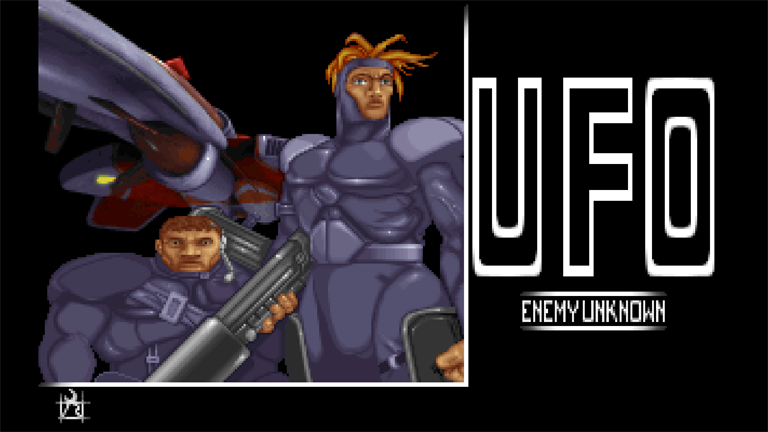
UFO: Enemy Unknown (1994)
Released as the eponymous X-Com: UFO Defense in North America, the first game in the franchise was the sort of happy accident that just cannot be conveniently replicated or monetized (which hasn't stopped studios from trying).
On the one trotter, there were the Gollop brothers: Julian and Nick, of Mythos Games, whose work on Laser Squad (a 1988 title many see as the granddaddy of all turn-based squad-level combat games) inspired them to pitch a sequel to MicroProse. On the other, there was MicroProse itself, which suggested the UFO theme and – due to its work on Civilization – expanded the game's focus from just tactical combat to a much broader outlook that encompassed research and development, facility management and, naturally, the UFOpaedia.
With MicroProse UK artists John Reitze providing the iconic, manga-like style for character and equipment designs, Martin Smillie designing the fantastic, isometric environments, John Broomhall composing the extra-creepy music (which, you won't be surprised, was inspired by the score from Psycho); and Steve Hand, an assisting designer, coming up with the global, Geoscape interface, the game mutated from its original concept into "one of the cornerstones of strategy gaming."
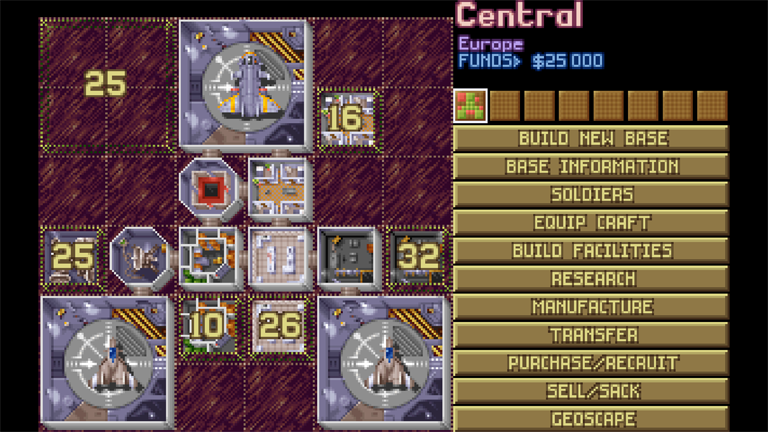
The premise was simple: aliens invade Earth.
An international organization (X-Com) is assembled to combat said invasion and you (the player) are in charge. Starting out with a single base, two interceptors, a transport aircraft and a handful of greenhorn soldiers who haven't the foggiest of what they signed up for, you are given the onerous task of fending off the invaders.
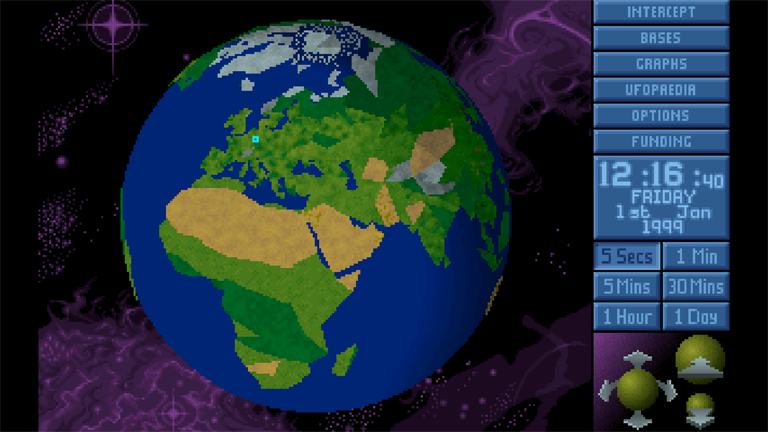
X-Com was split between the Geoscape (world view) and Battlescape (tactical view).
On the Geoscape, you managed your bases – building facilities, recruiting replacements, researching alien technologies and manufacturing equipment – and responded to alien contacts – either via interception or by containing terror attacks.
The Battlescape, on the other hand, put you into fast-paced, isometric engagements that saw you hunt (or be hunted by) the aliens.
Unsurprisingly for a game seen as "one of the best PC strategy games ever," X-Com was (and yet remains) fantastic. Everything about the game – from its underdog theme and growing sense of attachment to your soldiers, to the escalating sense of danger inherent to new, more powerful alien races and devastating technologies – came together to form an experience that could be quite unforgiving and rewarding at the same time.
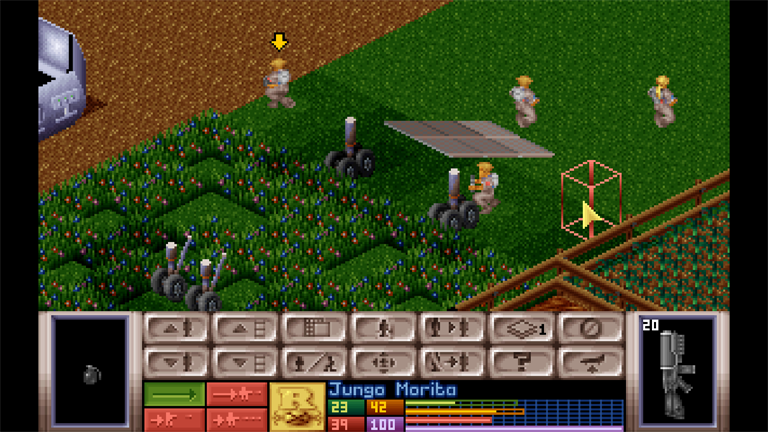
While individual playthroughs can last between 40 and 80 hours at a stretch, the game has that innate pull that, given enough time, reels you back in for "just one more run" (which, at a conservative estimate, I've completed at least a dozen times over the years).
At the time of release, X-Com proved to be a commercial success and "the number one sleeper hit of all time" which proved somewhat unfortunate as it imposed a certain financial expectation on the franchise. An expectation MicroProse was all too eager (though under-equipped) to fulfill...
Teh Flops (1995-2001)
What followed was a string of flops that unsuccessfully attempted to cash-in on the X-Com name.
There was Terror from the Deep (1995), which answered the question "what if X-Com was boring, drab and underwater?" Apocalypse (1997) which was too ambitious for its own good, suffered from one dumpster fire of a development cycle and delivered a mixed experience with amateurish visuals. Interceptor (1998), which was a Descent-like "space sim" that landed with a resounding "meh." The so-called E-mail X-Com (1999) – a bastardized, budget version of the original with simplified gameplay and graphics that was only playable via multiplayer. And, lastly, Enforcer (2001), a goofy 3rd-person shooter.
These five regrettable "games" each made the mistake of imitating the original too closely (or not at all) – all the while providing zero original ideas or worthwhile innovations – and saw franchise ownership change hands from MicroProse to Hasbro to Infogrames. Due to the string of underwhelming releases, the series then lapsed into limbo and stayed there for another decade and change before springing back into the spotlight in fine form...
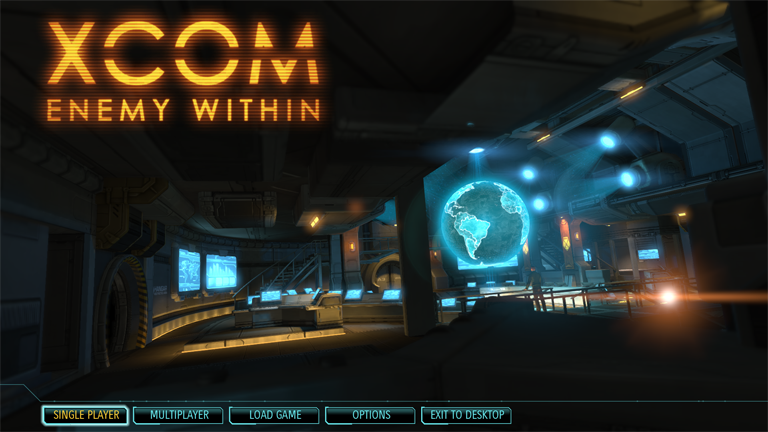
XCOM: Enemy Unknown (2012)
That the series' rebirth was helmed by a longtime X-Com fan (Jake Solomon) and influenced by the man responsible for (roughly) half of its original appeal (Sid Meier) should come as no surprise. What was surprising, however, was the fact Firaxis (the studio that made XCOM) spent almost nine years tweaking the original formula into a more streamlined, more detailed experience that – while still not better than the original – could easily be rated on par with it.
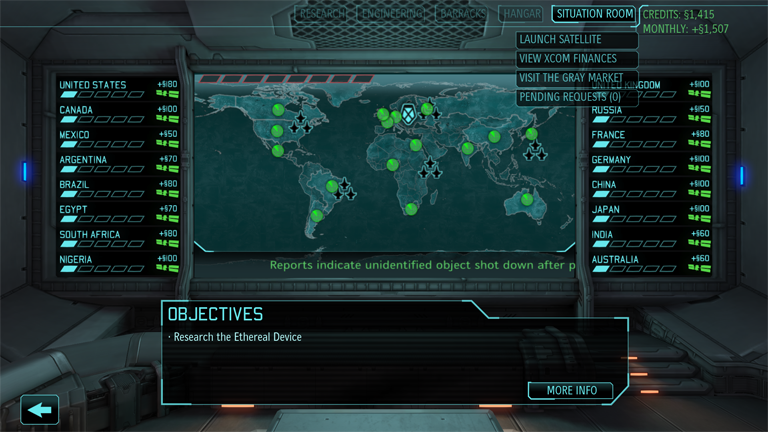
XCOM offered a more cinematic, fully 3D experience powered by UE3 as well as gameplay refinements that did away with X-Com's Time Unit-based expenditure (resorting instead to the – by now iconic – Two Actions Per Turn); introduced cover (partial and full), limited the squad size to six for more impactful engagements; introduced a class system and unit skills, unique, hand-crafted plot missions and (for better or worse) added a multiplayer component that allowed control of both X-Com soldiers and aliens alike.
Between the faster, streamlined (but no less deep) gameplay, a visual redesign that still tangibly clung to X-Com roots and a fantastic overall production, XCOM truly was the kinda-sequel long-time fans of the franchise had been waiting for — a fact which was cemented with solid sales and a smattering of accolades.
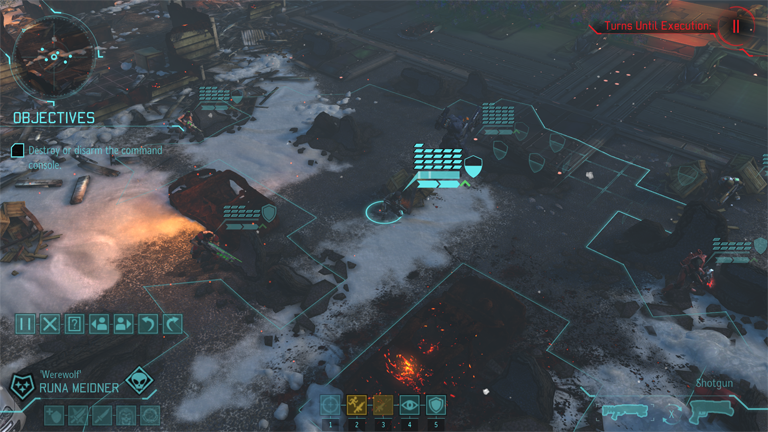
Together with XCOM: Enemy Within (released a year later in 2013), which further evolved the gameplay by introducing a subplot centered around a paramilitary organization called EXALT that starts undermining X-Com's defense efforts, new units for both factions and more, XCOM became the inspiration for revived interest in turn-based combat games and saw a whole new crop of titles come into existence.
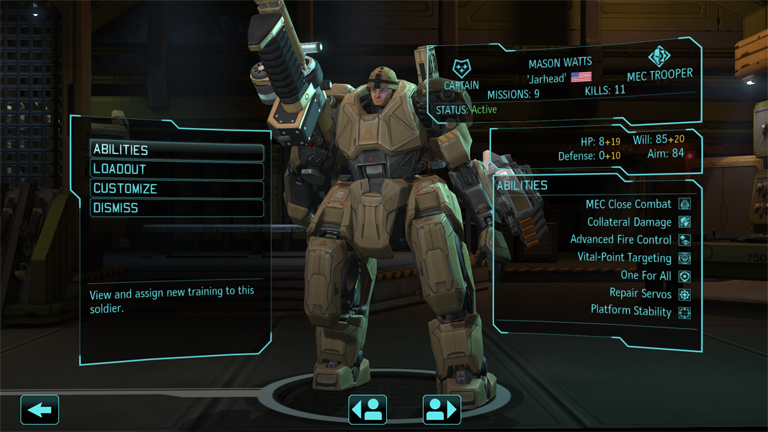
Personally, I like it a great deal (especially with Enemy Within's introduction of MEC Troopers and Gene Mod upgrades); with my only qualm being the ending. But although it was a genuine breakthrough and a milestone in the franchise's evolution, it is not my favorite game in the series.
Teh Flops (continued) (2013-2021)
Now, one would be justified in thinking that after XCOM finally nailed the formula for redevelopment and 2K acquired the IP rights to the franchise, X-Com's future would be smooth sailing from then on — and one would be wrong.
The solid release was not enough to tame the innately human arrogance of "I can do better" which saw the continuation of even more poor imitations such as The Bureau: XCOM Declassified (2013) – a revisionist retelling of the X-Com story in the 1960s through the medium of a 3rd-person shooter; Chimera Squad (2020) which further starved the gameplay by limiting your soldiers to 11 unique characters with poor VO, shortened the gameplay loop and dropped the ball on production; and Legends (2021) — a Mobile. Game. (in every sense of the word)...
But all that can be forgiven because – before they resorted to hacky, poorly-designed and tepidly-realized ways to keep the franchise going – Firaxis made One True Effort, which gave us...
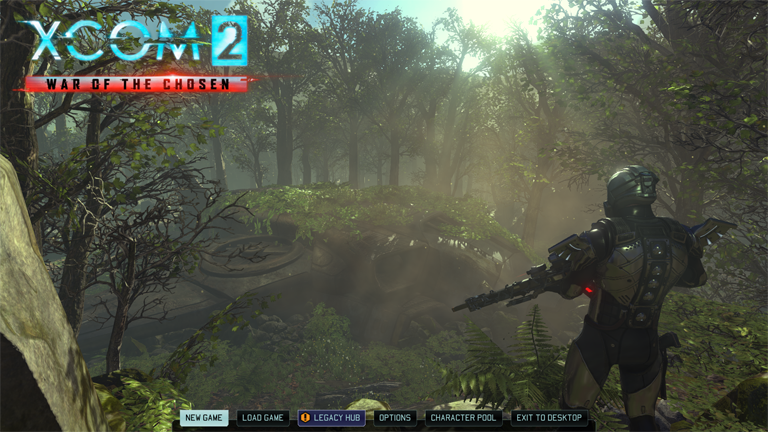
XCOM 2 (2016)
Much as I love X-Com and as meaningful as XCOM was both to the franchise and gaming as a whole, XCOM 2 (together with 2017's fantastic War of the Chosen expansion) is my favorite game of the entire topsy-turvy series.
The things I liked most about X-Com – the sense of attachment and camraderie you felt towards soldiers who survived engagement after stacked engagement, the fast-paced tactical gameplay, base-building and looming uncertainty you felt every time your Skyranger touched down – are all here, but — better.
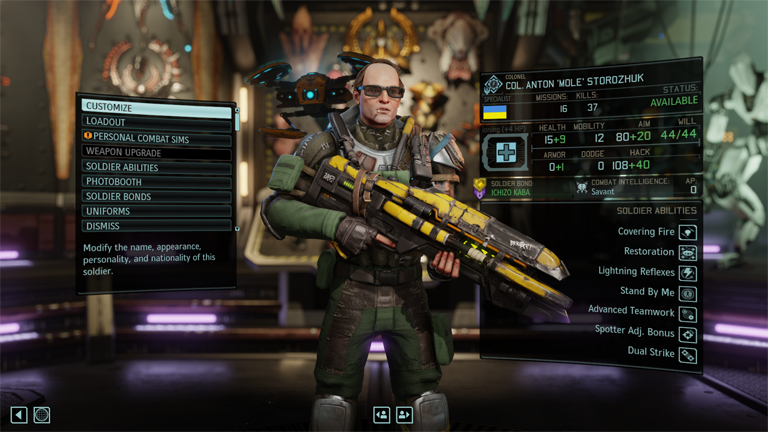
Soldiers can now be personalized in the extreme — from nationalities and languages, to facial features, armor types and colors or even tattoos. The skill sets, while still not elaborate, can be navigated to create specialized, useful builds. Over the course of your campaign, soldiers can form Bonds with each other which allows for the use of new teamwork-based abilities. And, unlike in the original, a leveled-up soldier is now a force to be reckoned with, which makes ensuring their survival ever more important.
Between the introduction of new enemies (such as the zombie-like Lost, creepy shapeshifter Faceless or now-towering Sectopods), new mission objectives and types, the neat shift to a single, mobile base (which elevates X-Com's underdog credentials to whole new heights, making you feel like an underfunded guerilla force); and War of the Chosen's terrifying unique bosses (who finally voice an insight into how the aliens operate and think), XCOM 2 is the culmination of great gameplay, terrific writing, a polished production and unadulterated joy that was 22 years in the making.
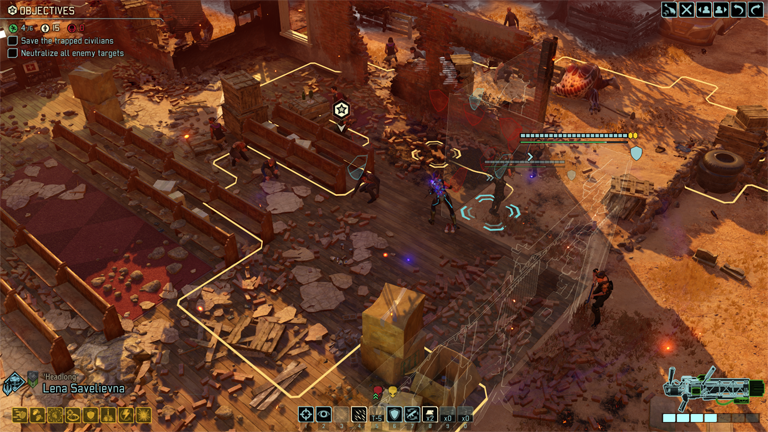
Because of my self-confessed weakness for character generators (and the near-limitless nature of soldier customization), I try to keep playthroughs a couple years apart, but – since GoG's offline installer first went on sale – XCOM 2 has never left my hard drive and is always, always there, tempting me for another go at Earth's salvation.
Summation
While the franchise has had its share of ups and downs, it also resulted in three Great Games and had an undeniable, tangible and quite meaningful effect on modern game design as a whole. Any time you enjoy something like Invisible Inc., Xenonauts or Hard West, know that they were only made possible because of the efforts of Mythos/MicroProse in 1994 and Firaxis in 2012.
Despite the fact that all three games (X-Com, XCOM and XCOM 2) are quite linear and have a limited array of events and mechanics on offer, their core design is so strong and the gameplay so engrossing that – regardless of whether you are a hardcore turn-based player or just a passing fan of Good Games in general – they are difficult to stay away from for long.
Of the three, X-Com – being the oldest and most limited in design – is naturally the "weakest" (great) game... The other two are a toss-up that will largely boil down to personal preference.
XCOM/Enemy Within slant the gameplay more towards the classic loop of a global organization mired in internal strife – with covert missions, alien collaborators and an ever-present air of uncertainty. The MEC Troopers and Gene Mods are awesome and I wish they had made the transition to XCOM 2 (between you and me, they're my favorite part of XCOM).
XCOM 2/War of the Chosen, on the other trotter, offers (in my opinion) the more indepth experience with further customization that narrows gameplay focus even further into the realm of a small, resistance force opposing a power structure that – honestly? – feels almost like a foregone conclusion.
Whichever of the three games you decide to get into, rest assured that disappointment will not be in the cards. Whether it's because of the fantastic art and Great Original Idea or faster gameplay that nonetheless keeps said idea largely intact, all three make for Fulfilling Gaming that will leave you wanting more.
With recent leadership changes, layoffs at Firaxis Games and several lukewarm releases, I'm not sure where the X-Com franchise is headed next. But even if a third retelling of the original will not take place, I'm quite happy with what it's produced to date.
Because with games this good, even three out of 11 can be a score to be proud of.
